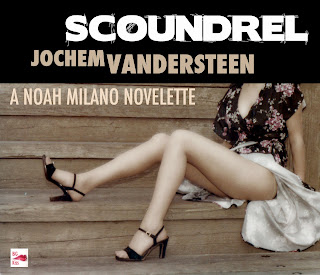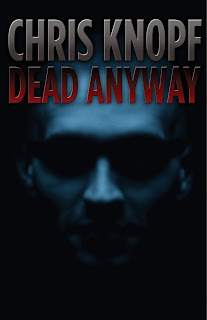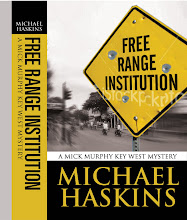Chester has permitted me to run the first chapter of The Poksu Conspiracy for you. Enjoy and you can order his book at Amazon.
Budapest,
Hungary Chapter 1
September seemed an ideal time
for Burke Hill to take his wife Lori on a long-delayed honeymoon trip to
Hungary. When they were married the previous December, the demands of his new
job made leisure travel impossible. The visit to Budapest would be a strange
sort of homecoming for the former Lorelei Quinn. She’d vowed to dig as deep as
it took to uncover her hidden roots.
By now the summer sultriness had
mellowed into warm days and cool nights, a pleasant interlude the imaginative
Magyars referred to as “old women’s summer.” It was Lori’s first trip back
since a near disaster at the hands of the communist-era secret police a decade
ago. And though the recent demise of the Cold War soon convinced her of a
renewed sense of vibrancy among the people in this onetime “Paris of the East,”
an incident at the airport terminal seemed disturbingly reminiscent of the bad
old days.
While she stood to one side
waiting for Burke to claim their luggage, she noticed a man across the way watching
him. He was swarthily handsome, with wavy black hair and a trim build. As he
looked around, Lori averted her gaze to avoid any show of interest. When she
looked back, his eyes were again locked on Burke. It took her back several
years to her somewhat abbreviated career in the CIA, when that sort of
surveillance presaged dire consequences.
A few minutes later, Burke walked
toward her pulling their two bags. She wanted to tell him about the watcher,
but a tall redheaded man accompanied him. “John Dahlgren, meet my wife, Lori,”
he said. “As you can see, she’s great with child.”
Lori grinned as she patted her rounded tummy.
She was six months pregnant. “The ultrasound confirmed twins,” she said. “This
trip had to be taken now or delayed indefinitely. Dr. Bracken wasn’t too happy
about my traveling now, but I insisted.”
“Nice to meet you,” Dahlgren said
with a slight bow of his head. “I was a twin myself. Some people say it’s
double trouble, but I’m sure yours will be a delight.”
“John was on our flight,” Burke
said. “He’s from New York. He’s also staying at the Duna-Intercontinental, so I
invited him to share a cab.”
Lori looked back before they left
the terminal, but the muscular man with the persistent stare had disappeared.
As soon as they reached their
hotel room, she told Burke about the apparent surveillance.
He stared at her, hands on his
hips. “Who the devil could it have been? This is strictly a pleasure trip.
Nobody should suspect I’m anything but a public relations company official on
vacation.”
While Worldwide Communications
Consultants, the firm he served as chief financial officer, was a legitimate
international PR counselor, it had a black operations side that reported to the
Central Intelligence Agency. Burke directed its activities in Europe, Asia, the
Middle East and Far East.
“I don’t have any idea who he
was,” Lori said, “but he was sure giving you the once-over. I suggest we keep
an eye out for any other signs of interest.”
By the afternoon of their second
day, despite constant vigilance, they had spotted nothing out of the ordinary.
Lori sat quietly in the back seat of an aging Zsiguli taxi, one of countless
relics that persisted as the city struggled with its bootstraps. It rumbled
noisily through the cobbled streets. Seated beside her, Burke studied his wife’s
troubled frown. It marred an attractive face with dark eyes and long dark hair
that normally wreathed an intriguingly mysterious smile. Now past fifty-five,
he was twenty years her senior. He still marveled at his incredibly good
fortune in managing to win the love of this bright, vivacious young woman. But,
at the moment, he grappled with a growing concern over her dark mood.
He didn’t need to be told the
reason for it.
“I hope you’re
prepared for disappointment in case things don’t turn out the way you’d like,”
he said, a warning note in his voice. “There are plenty of reasons why people
aren’t always overjoyed at being confronted by a relative they never knew
existed or hadn’t seen in years.”
Their first day had been spent
mostly at the American Embassy and the Justice Ministry, where they searched
records of the old AVO, the hated state security police, for clues to the fate
of Istvan Szabo, a young economist who had taken up the cause of his students
during the ill-fated 1956 revolution known as the “Hungarian uprising.” The
files had likely been tampered with. At the very least, they were incomplete.
What they did manage to learn was the name and address of his mother, Margit
Szabo. Now nearing ninety, she had been one of Hungary’s best loved actresses
during her performing years.
“I have my fingers crossed,” Lori
said, managing a weak smile.
The cab crossed the glistening
Danube via the picturesque Chain Bridge and soon turned onto Budakeszi Avenue,
once a quiet residential street in the Buda hills. Now it was crowded with
cars, trucks and buses. Where open green spaces had formerly separated the
genteel old homes, newer, unimaginative flats dotted the landscape. It was one
more indication of the internal struggle Budapest was undergoing as it sought
to be progressively modern and yet hold onto its Old World charm.
Lori took a firm grip on Burke’s
hand as the taxi turned in between two lofty chestnuts and stopped before an
ancient iron gate. The driver got out and checked it, found it unlocked. He
pushed the gate open, triggering a harsh metallic squeak, then drove onto a
driveway that led back to a mercilessly weathered old garage. Beside it stood a
large two-story house that seemed almost a living thing, cloaked as it was with
a thick green coat of ivy.
Burke paid the driver, and they
walked slowly up to the front door. They were met by a short, shapeless woman
in a simple peasant dress. She had obviously been alerted by the protesting
screech of the gate. She eyed them with caution.
“I’m Lorelei Hill
and this is my husband, Burke,” Lori said, unsure if the woman could understand
her. They knew from the Hungarian clerk at the Embassy that Mrs. Szabo could
speak English quite well, though with a pronounced accent, possibly the result
of long disuse.
The small woman, obviously a
housekeeper, said nothing, but motioned them inside. They followed her into a
large room that seemed foreboding in its gloomy darkness. Although the sun
shone brightly outside, little of its glow penetrated the heavy curtains that
shrouded the windows. A polished wooden table bearing old photographs of an
actress costumed for various roles, pictures of a man and two boys, and other
memorabilia of times long past sat at one side of the room. The opposite wall
was hung with faded tapestries.
And then Lori saw her, the aging
figure of Margit Szabo, once the darling of the Budapest stage. She sat in a
large chair in one corner of the room. The housekeeper ushered them toward her.
Despite her years, she sat stifly erect. She was dressed all in black. A large
gold pendant hung from a chain draped around the spare flesh of her neck. Her
hair was white but carefully groomed. She had the look of a piece of fine
antique china, elegant features that could only have been fashioned by an
accomplished artist, ostensibly delicate, but possessed of an inner strength
that showed through the thin outer shell.
“Please have a seat,” Margit
Szabo said in a surprisingly strong voice, gesturing toward the sofa across
from her chair. “My voice and my hearing have not failed me, though I can’t say
as much for these old eyes. Tell me what it is you wish to speak with me about.
I did not fully understand from your embassy.”
Lori knew the Embassy clerk had mentioned
their visit concerned her son, Istvan Szabo. Since he had died in the failed
revolution of November 1956, after Russian tanks poured into the streets of
Budapest, just mentioning his name was bound to bring back agonizing memories.
“My name is Lorelei Hill,” she
began, then paused somewhat awkwardly, conscious that Mrs. Szabo was well aware
of who she was. “What I mean is, that was the name my dad... uh, actually, my
stepfather...”
It wasn’t going at all as she had
intended. She had gone over in her mind a hundred times what she wanted to say
at this moment. But now her tongue was stumbling all over the words. She had
planned to lead up gently to the key revelation, not wanting it to come as a
sudden shock. Instead, it tumbled out in a heedless rush of words.
“What I’m trying to say, Mrs. Szabo, I believe
I am your granddaughter.”
Now that it was
out, she felt a sudden wave of relief. Until the elderly woman spoke.
Margit Szabo delivered her lines
with all the force and drama of a character from a Shakespearean tragedy. “You
are not my granddaughter. My granddaughter died at birth, and her mother with
her.”
Lori took a sharp breath. It had
hit her like a knife plunged deeply and twisted.
“But... but that was only a story made up to
fool the AVO,” she said in protest. “My dad, that is, my stepfather, Cameron
Quinn, was with the Central Intelligence Agency. He had been in contact with
your son, Istvan, to keep up with what was going on. To help if possible. Your
son asked—”
“Yes, he helped,” Mrs. Szabo
broke in. “The police knew my son had been in contact with a CIA agent. They
gave him a summary trial and executed him.”
Lori’s eyes widened. “How do you
know—?”
“Istvan’s brother,” she said, her
voice suddenly lowered, her eyes beginning to blink back the tears.
“Gyorgy was
with the AVO.” For the first time, a crack had appeared in the old woman’s hard
shell.
“Gyorgy told me. He was powerless to stop what happened. He was not a
bad boy, Gyorgy. Only
misguided.”
Lori shook her head in despair,
sensing the torment that must have plagued Margit Szabo, her grandmother. “I’m
so sorry,” she said.
One son a patriot who gave his
life in the fight for freedom, the other son a communist collaborator whose
secret police colleagues were responsible for his brother’s death. Perhaps he
had not been completely blameless himself, despite his mother’s attempt to
absolve him. It was a tragic dichotomy the aging actress had lived with all
these years.
It might be, Lori thought, that
she could find out more about her real father from his brother. “Where is
Gyorgy now?” she asked.
Tears coursed
down Mrs. Szabo’s anguished face. She dabbed at them with a small kerchief. “Gyorgy
is gone, too. My husband, all of my family are gone. What do you want of me?
Why did you come here to torment me with these painful memories so long put to
rest?”
Lori was suddenly on her knees at Margit Szabo’s
feet. She spoke in a pleading voice. “But I am your granddaughter. I must be.
My stepfather told me what happened after my mother... my stepmother’s death.
She was in the same hospital as Istvan’s wife, on the same floor for a
hysterectomy. Istvan was afraid the AVO might take some action against his
wife. He asked Cameron Quinn to look after the baby if anything happened. When
they came for my real mother, he arranged with the doctor and a hospital
official to switch the records to show that I had been born to Julia Quinn.
They indicated my real mother had a stillborn. The AVO probably changed the records
to say my mother died during childbirth. But she was alive when they took her
from the hospital.”
The old woman had closed her eyes
as soon as Lori approached, as if, not seeing, she could safely deny something
she was unprepared to accept. She shook her head. “I have no granddaughter,”
she said in a choking voice. “My family is all gone. I am alone. Please go and
leave me with what memories I still possess.”
Lori looked up, tears streaming
down her cheeks. She could not get through to this tragic, aging figure. It had
all been in vain, the trip over here, the day of digging through the AVO files,
a fruitless search for a past that must remain forever buried in the graveyard
of Margit Szabo’s splintered dreams.
Then Mrs. Szabo’s wrinkled lids
cracked open, like an ancient turtle preparing to peer out of its shell. Lori
saw the weary eyes stare down at her, as if really seeing her for the first
time. A frail hand reached out, a shaky finger traced the line of her nose,
touched her lips.
“You are a reincarnation of my
son, Istvan,” she murmured.
Lori buried her face in her
grandmother’s lap as the old woman leaned down and kissed her cheek.



























